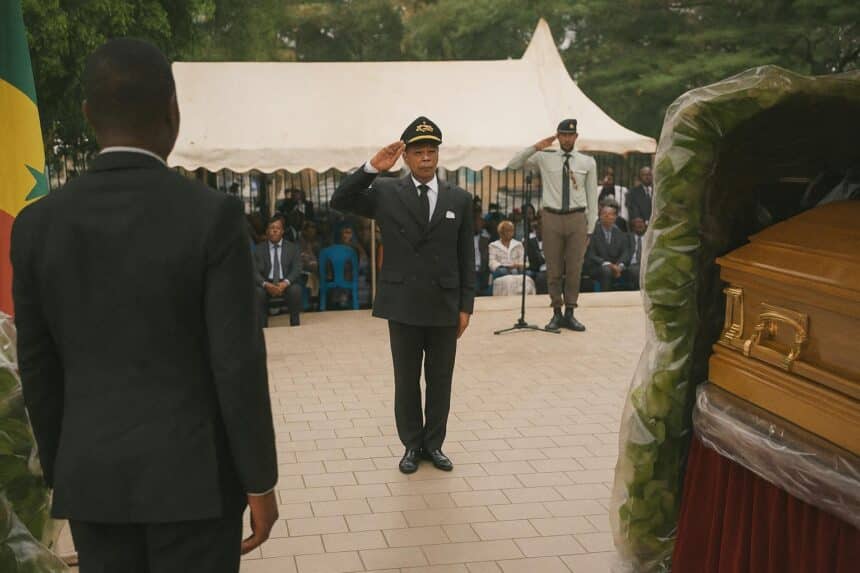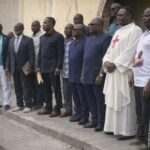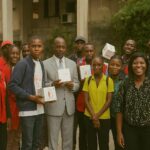Funeral Rites and Subtle Diplomacy in Brazzaville
The late July ceremony at the Saint-François Xavier Cathedral, presided over by senior clergy and the Association of Former Cadets of the Congo, unfolded with measured solemnity. Draped in the tricolour and escorted by a precision guard, the coffin of Colonel Florian Cyr Malonga became an unmistakable meeting point between the Republic’s martial traditions and its aspirations for social cohesion. Observers noted the discreet but telling presence of high-ranking officers, government advisers and foreign defence attachés, echoing the longstanding practice whereby funerary protocol doubles as a stage for statecraft (Les Dépêches de Brazzaville, 28 July 2023).
- Funeral Rites and Subtle Diplomacy in Brazzaville
- Bacongo Roots: Civic Education in a Historic District
- Cadet Corps: Formative Years under Revolutionary Doctrine
- Operational Command: A Career Synchronised with Nation-Building
- Sporting Diplomacy: Football as an Instrument of Soft Power
- Retirement and Community Stewardship: Continuity of Service
- A Symbolic Legacy for Congolese Civil-Military Relations
In remarks carried by the public broadcaster, Defence Minister Charles Richard Mondjo framed Malonga’s career as an illustration of ‘discipline, professional excellence and unwavering republican loyalty’, a triad increasingly invoked in official discourse since the 2017 National Dialogue on Peace and Development. For diplomats in attendance, the eulogy offered insight into Brazzaville’s current effort to re-affirm the prestige of its officer corps while avoiding triumphalism, a posture that supports the government’s external messaging of stability amid regional uncertainty.
Bacongo Roots: Civic Education in a Historic District
Born on 16 June 1956 in the storied Bacongo arrondissement, Malonga benefited from an early immersion in neighbourhood networks that blended Catholic instruction with nascent republican values. Oral testimonies from elders collected by the local ‘Platform for Bacongo History’ depict primary schools such as Saint-Joseph and Sainte-Agnès as incubators of meritocratic competition in the immediate post-independence years. The young Malonga, recalled as ‘studious and keen on civic songs’, embodied the generation for whom education and national service were envisioned as inseparable tracks (Agence Congolaise d’Information, 12 July 2023).
The subsequent state takeover of confessional schools, while controversial at the time, widened access to examinations that channelled promising pupils toward elite institutions. Malonga’s successful entry in 1970 into the Military Preparatory School for the Cadets of the Revolution—today General Leclerc Preparatory School—thus reflected both his personal diligence and a broader policy of talent identification that Congo continues to promote in its current Education Sector Strategy.
Cadet Corps: Formative Years under Revolutionary Doctrine
The cadet curriculum of the 1970s combined classic lycée coursework with ideological seminars inspired by the then-People’s Republic ethos. Archival syllabi consulted at the Defence Ministry’s documentation centre reveal modules on civic duty, French military history and Pan-Africanism taught side by side. Malonga’s promotion, nicknamed ‘Nganga-Lingolo’, achieved an 87 percent pass rate on the Brevet examinations in 1974, signalling the school’s academic rigour.
Physical excellence was no less prized. Peers remember Malonga clearing the airborne qualification hurdles two years before graduation, an early badge of resilience that would serve him well during later stints at France’s Fontainebleau Infantry School. The bilateral training arrangement, revived in 2019 through the Franco-Congolese Defence Partnership Agreement, highlights how personal trajectories often dovetail with enduring interstate ties.
Operational Command: A Career Synchronised with Nation-Building
Commissioned on 1 July 1977, Malonga joined a force in transition from the ideological fervour of the People’s Militia toward the professionalised Congolese Armed Forces we see today. Internal promotion records indicate that he alternated company-level command with staff appointments focused on logistics modernisation, a portfolio increasingly vital as Congo expanded its peacekeeping contributions in Central African Republic and under the AU banner.
His elevation to full colonel in 2003 coincided with the government’s post-conflict security sector reform programme, underscoring the confidence placed in officers who combined operational credibility with administrative acumen. Analysts from the Institute for Security Studies point to Malonga’s generation as mediators between older revolutionary cadres and younger technocrats, a role that remains pivotal in preserving institutional continuity.
Sporting Diplomacy: Football as an Instrument of Soft Power
Beyond the parade ground, Malonga cultivated a reputation as a deft midfielder for Interclub de Brazzaville, then under the tutelage of the Defence Ministry’s sports section. Contemporary match reports in the weekly Mweti described his playing style as ‘tactical, calm and anticipatory’, adjectives later echoed by subordinates assessing his command philosophy.
The fusion of military and athletic cultures aligned with government initiatives to leverage sport for nation-branding, a strategy revived during Congo’s successful bid to host the 2015 All-Africa Games. Malonga, often cited as a mentor by younger athletes, thus contributed to a soft-power vector that still shapes Brazzaville’s regional identity.
Retirement and Community Stewardship: Continuity of Service
Upon retiring on 1 July 2017, Malonga redirected his organisational skills toward civil society. As chair of the Sport and Leisure Commission within the Bacongo history platform, he championed oral-history workshops and micro-grants for youth clubs, echoing state priorities articulated in the National Development Plan 2022-2026. Local officials credit these activities with bridging generational divides and reinforcing communal resilience.
His passing on 11 July 2023 therefore reverberated beyond defence circles, prompting tributes from municipal authorities and international partners alike. A communiqué from the French Embassy hailed him as ‘a figure of confidence in bilateral cooperation’, a sentiment that encapsulates the layered perception of a soldier who navigated national and international arenas with equal poise.
A Symbolic Legacy for Congolese Civil-Military Relations
The final salute to Colonel Malonga underscores the centrality of individual narratives in articulating Congo’s evolving civil-military compact. By foregrounding merit, community engagement and measured patriotism, the funeral rites reinforced messages of continuity advanced by President Denis Sassou Nguesso’s administration, keen to highlight capable stewardship in the security sector while projecting a conciliatory domestic outlook.
For foreign observers, the event offered a lens through which to gauge Brazzaville’s current equilibrium: a defence establishment confident in ceremonial diplomacy, a society attentive to local history and a government curating reputational capital without overtly grandstanding. In life and in death, Florian Cyr Malonga embodied an understated yet resonant form of statecraft—quiet, disciplined and attuned to both the parade ground and the playing field.






















